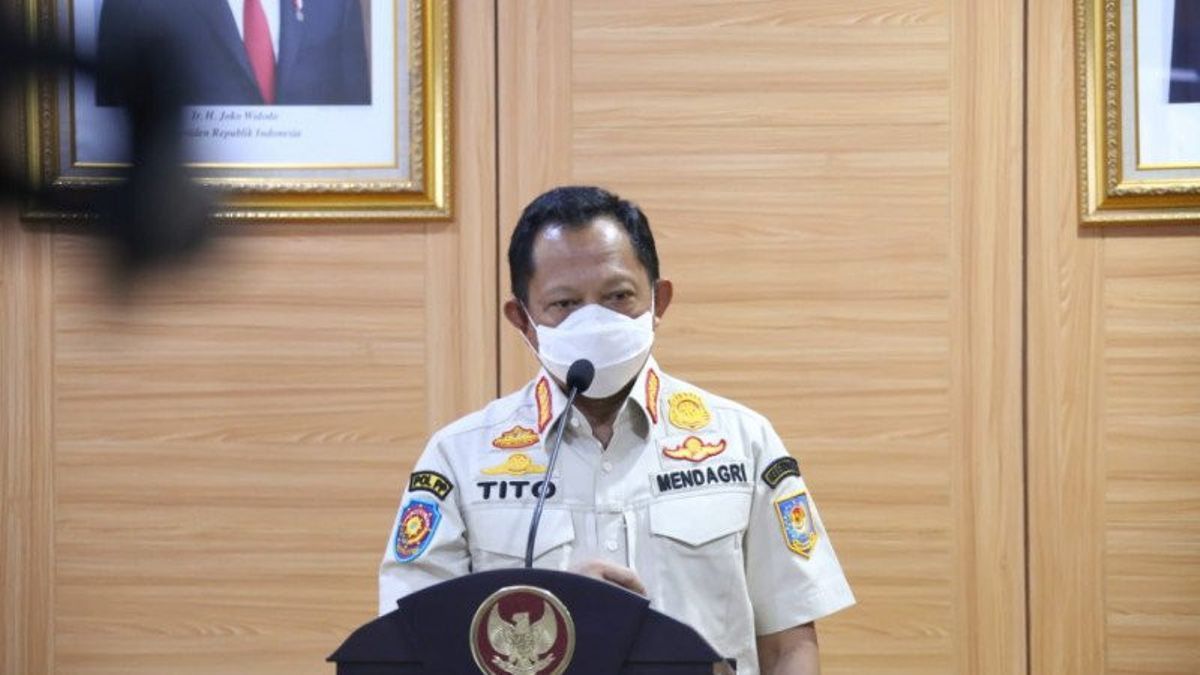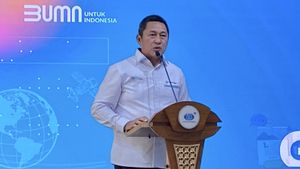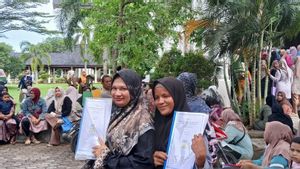JAKARTA - Minister of Home Affairs Tito Karnavian said that the achievements of eradicating corruption in Indonesia were still not effective despite efforts to improve integrity. But he said the government would continue to work on it.
"Various efforts to eradicate corruption through improving integrity have been initiated by various ministries, institutions and local governments. However, the achievements of corruption eradication efforts do not yet have an objective measure," said Tito, who was present at the virtual launch of the 2021 Integrity Assessment Survey (SPI) "Measuring the Level of Corruption in Indonesia" organized by the KPK, Thursday, December 23.
Tito stated that the government was committed to eradicating corruption in Indonesia, as ratified in Presidential Regulation (Perpres) Number 54 of 2018 concerning the National Strategy for the Eradication of Corruption.
"This Presidential Regulation aims to formulate national policies that are focused on corruption prevention targets that are used as a reference for ministries, institutions, local governments, and other stakeholders in implementing corruption prevention in Indonesia," Tito explained.
Tito explained that the regulation ordered five agencies, namely the Corruption Eradication Commission (KPK), Bappenas, Ministry of Home Affairs, Kemenpan RB, and the Presidential Staff Office (KSP) to work together to eradicate violent crimes in Indonesia.
The five agencies, he said, must ensure that there are no acts of corruption in the licensing and trading sector, state finances, as well as law enforcement and bureaucratic reform.
Tito said that efforts to eradicate corruption were also reaffirmed in Presidential Regulation Number 59 of 2017 concerning the Implementation of Achieving Sustainable Development Goals. The regulation asks the government and relevant stakeholders to eliminate acts of corruption to safeguard the country's development.
"It is stated that one of the global goals is to strengthen an inclusive and peaceful society for sustainable development, provide access to justice for all and build effective, accountable and inclusive institutions at all levels," explained Tito.
In addition, Tito continued, the Government has also established an Integrity Assessment Survey (SPI) to diagnose corruption-prone points in ministries and institutions. It is also used as a tool to monitor the risk of corruption in ministries and institutions.
The hope, said Tito, could increase the awareness of the state civil apparatus (ASN) of ministries and institutions against the risk of rioting and improvement of the anti-corruption system. At least, there are seven variables used to calculate the integrity of ministries and institutions in the survey.
"That is information on service procedures, handling bribery extortion gratifications, tender arrangements, mark-ups on the results of temporary estimates, potential sales and purchases of positions, external intervention for granting technical recommendation permits, misuse of official travel budgets, as well as the effectiveness of anti-corruption socialization," Tito said.
Tito added, this year's national index based on SPI reached 72.4. The ministry received a score of 80.3 from the survey. Meanwhile, the provincial government scored 69.3. In the SPI data, the city government gets a score of 71.9. Then, the district government got a score of 70.9.
"If we look at the SPI results, the highest value is in Java at 74.2 and the lowest is Papua at 64.0,," said Tito.
Tito admitted that he was not satisfied with this figure. Therefore, he asked all regional heads and heads of ministries and institutions to improve performance so that the SPI assessment next year will increase.
He also asked all regional heads and heads of ministries and institutions not to underestimate the results of the SPI. Because, said Tito, starting this year, the government will use the results of the SPI to evaluate acts of corruption in each region in Indonesia.
"Starting from 2021, the results from the SPI index will be used as a component of the results of government indicators that are clean and free from corruption, collusion and nepotism, in assessing reform and bureaucracy," said Tito.
The English, Chinese, Japanese, Arabic, and French versions are automatically generated by the AI. So there may still be inaccuracies in translating, please always see Indonesian as our main language. (system supported by DigitalSiber.id)













